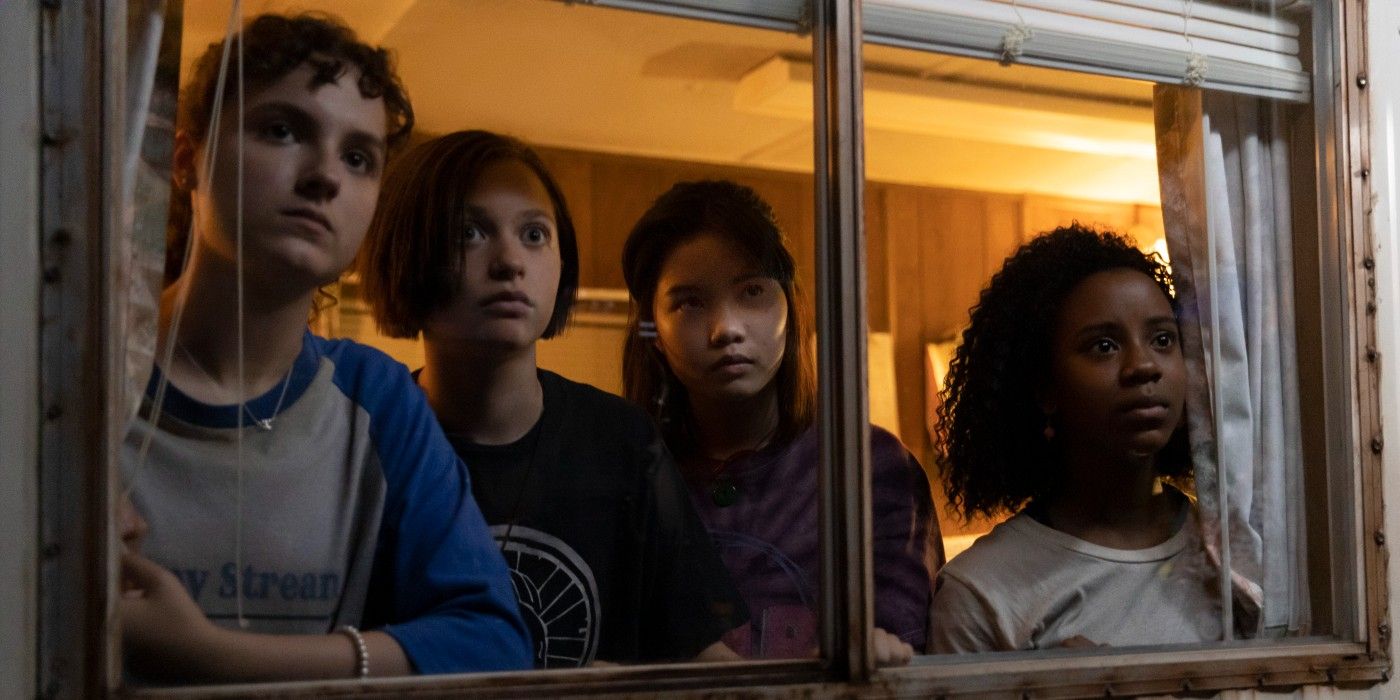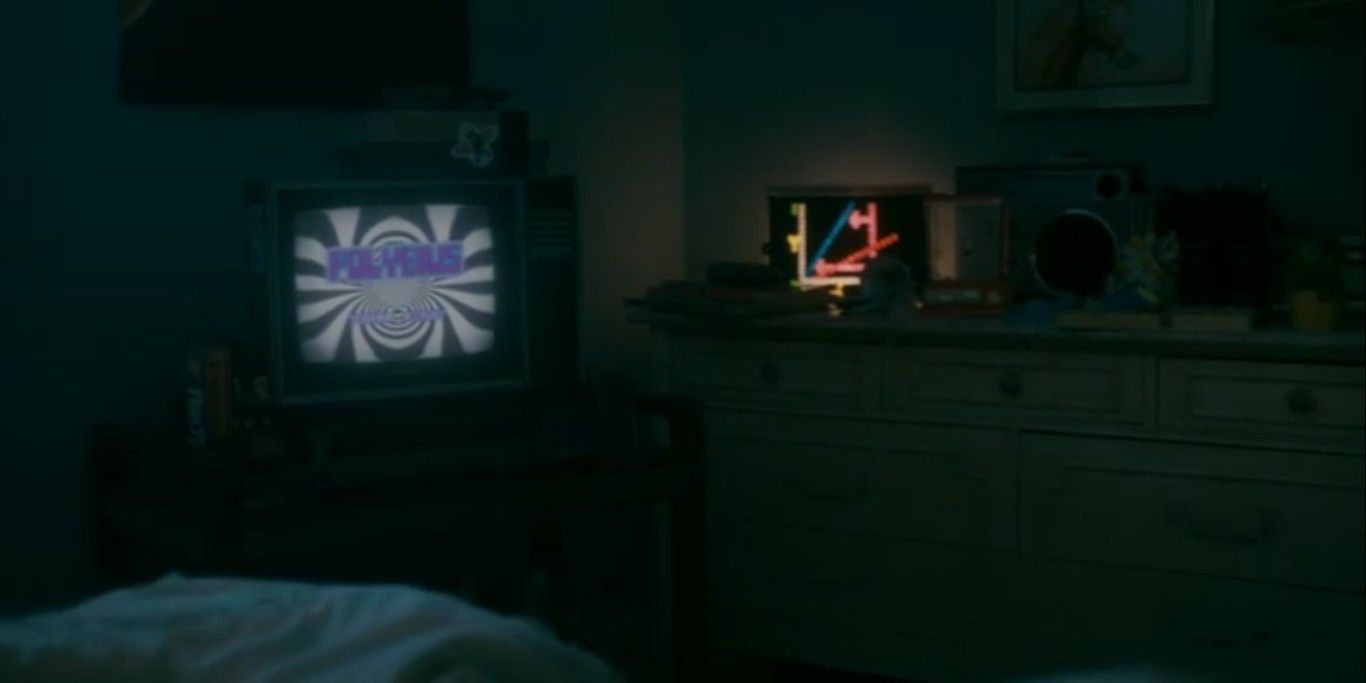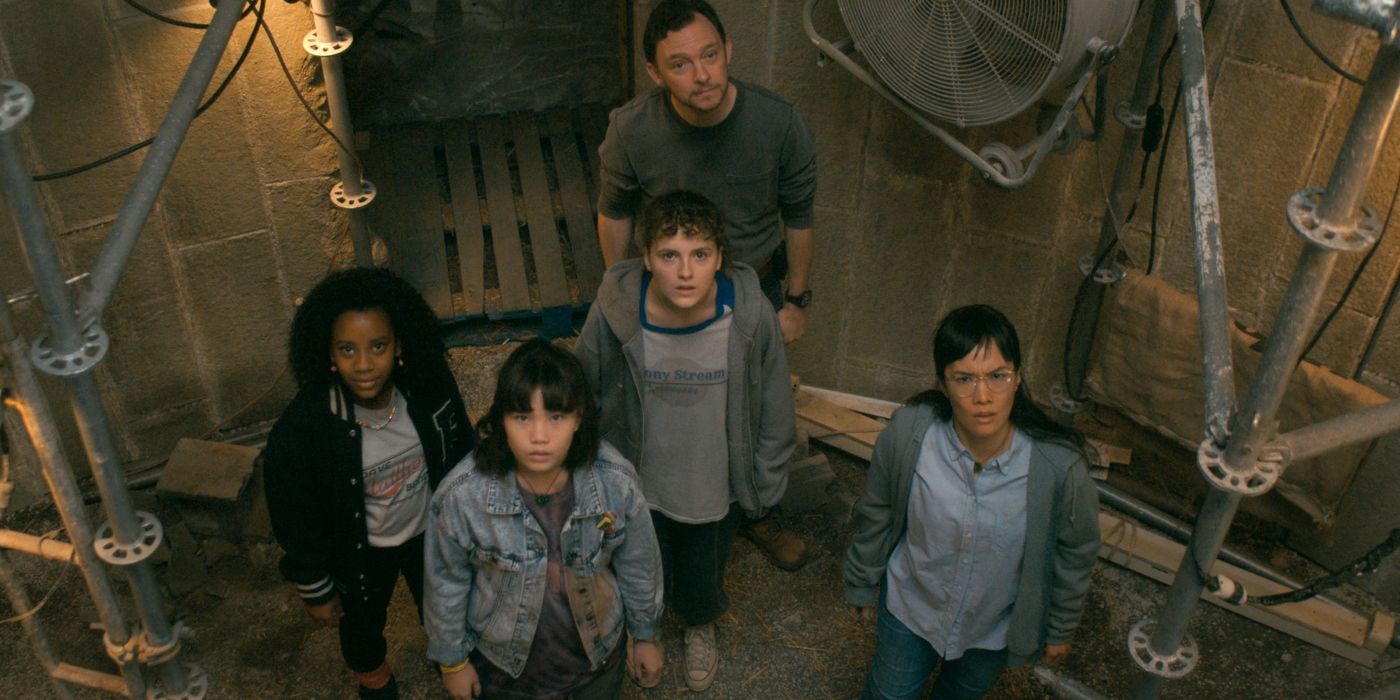The following contains spoilers for Paper Girls Episode 1, "Growing Pains," which premiered July 29 on Prime Video.
Early in the first episode, Paper Girls shows an old CRT displaying the start screen to a game called Polybius, referring to an old video game urban legend. Polybius is allegedly a cool and creepy game from the 1980s that caused some players to die and may also have been used as a recruitment device by the government. While the game never existed, its legend has become a staple trope of the '80s and time travel media. In Paper Girls, however, Polybius is doing more than just evoking a time period -- it's setting the stage to question what is real.
Adapted from the Brian K. Vaughan and Cliff Chiang comic, Paper Girls follows four girls from 1988 whose paper routes are interrupted by an epic, deadly time-travel battle. When the girls are accidentally sent forward in time, they meet future versions of themselves who don't necessarily line up with their current dreams and expectations. The rest of the series centers on the group trying to find their way back and save the world at the same time -- with the help of their future selves and a renewed determination gained from seeing how they turn out.
Polybius was supposedly a video game that appeared in select Oregon arcades in 1981. Stories tell of Polybius' addictive and psychoactive properties. Players would wait in incredibly long lines to get a chance to play, and disagreements over the game would quickly turn physical. Those who had a chance to play Polybius could suffer anything from headaches and insomnia to seizures and hallucinations. Government agents were said to watch players, either treating the game as a training method or observing its potentially deadly effects. Shortly after Polybius' supposed introduction, it vanished from arcades, leaving no physical trace of the game's existence aside from a single image of the start screen.
The legend of Polybius has long been used by movies and TV shows as a shorthand for a particular type of '80s nostalgia tinged with the supernatural. Its appearance in the Void in the series Loki showed that the game existed but was pruned from the "correct" timeline. Hardy Boys Season 2 showcased a version of the game as part of a supernatural vision, doubling down on the show's '80s culture but highlighting the mystical nature of the season. By including a version of Polybius in Tiffany's room, Paper Girls firmly establishes its setting as the '80s while also immediately recognizing that something's not quite right.
In fact, Tiff's copy of Polybius suggests that the primary world that the four titular characters know may not be the one viewers are familiar with. If Polybius is common enough for a pre-teen to have a home console version, then this version of the game couldn't have been wiped from the few Oregonian arcades that it appeared in -- and instead must have grown in popularity. Tiff's universe is a slightly different, more supernatural version. This fits well with co-creator Vaughan's goal of "anti-nostalgia" with the series. Polybius can't evoke nostalgia in viewers because it's an urban legend and never existed, but the discourse around the game means that including it in Paper Girls does induce a false sense of remembering and relating to something that never was.
While the 1980s have become a popular setting for media, with fact-checked shows like Stranger Things reaching peak popularity, Paper Girls treats its decade a little differently. Aiming for anti-nostalgia instead of just relying on the target audience's memory of the decade to bring people in, the show immediately unseats viewers by showcasing a different version of the '80s -- one in which urban legends are true, and Polybius, the psychoactive government training exercise, is available for home play.
Stream all of Paper Girls Season 1 now on Prime Video.



